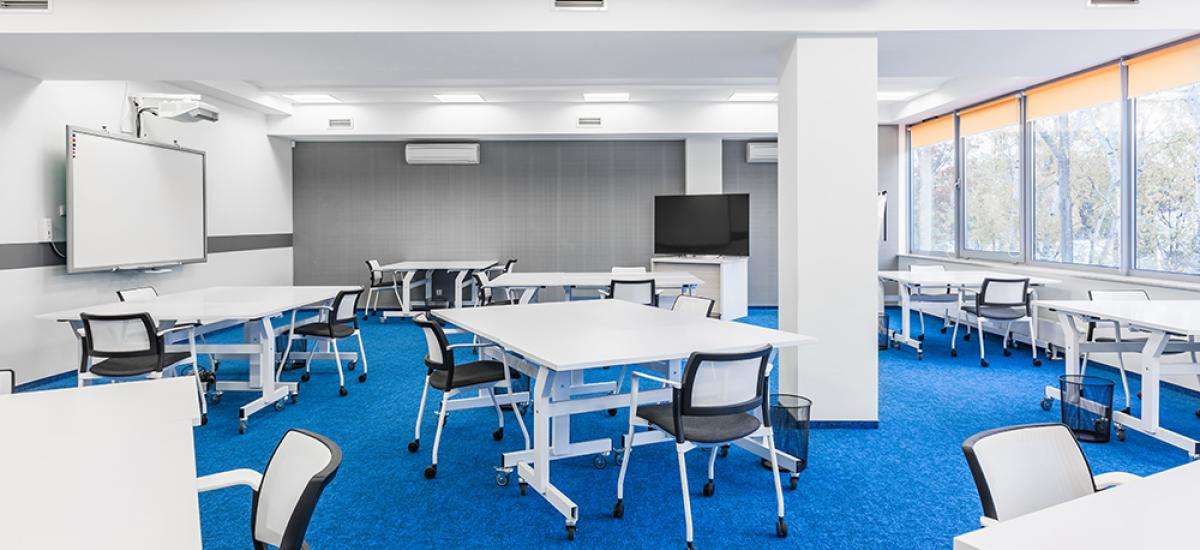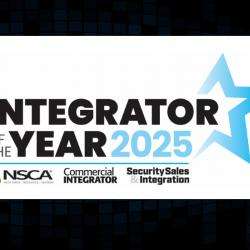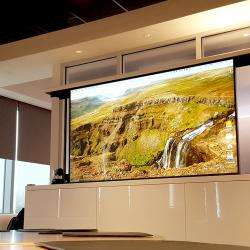Who’s Managing Your Technology and A/V Systems?

Technology has become an integral part in today’s business environment, from small think tank and collaboration rooms to full blown video conference and presentation rooms. Companies depend on this technology to collaborate, train, and drive their business. Companies are also investing much more on technology than in years past to provide their employees and their clients the type of experience they have come to expect and rely upon. The dependence on and the investment in this technology means that it is critical that the systems work consistently and reliably.
But what happens when the technology that we rely on every day fails to perform?
Traditionally, companies turned to their IT departments or facilities staff to help, and in years past, this approach worked fine. However, with this new digital age and BYOD (bring your own device) era, these systems are becoming ever more complex. Gone are the days of a single direct laptop connection to a display and a handheld remote control on the table. It has now been replaced by complex control systems with switching and routing that allows the end user to have the choice of multiple connection options, including both wired and wireless solutions. The need for a professional technology team that is trained and certified by the manufacturers is fast becoming a necessity.
The best way to protect your technology investment is through managed services from a professional integration company that knows your system inside and out, and can provide service, support, and training. There are many options available for managed services ranging from labor-only contracts to all-inclusive labor and equipment coverage, and from meeting support to full-time on-site technical staffing. Let’s take a closer look at some of these options that managed services can provide.
Expedited Response
Companies rely on technology to get business done. When that technology is no longer working, meetings can get disrupted or delayed, and productivity slows down. With a traditional service agreement, on-site response times can be customized for either 48hr, 24hr or even same-day on-site support. This greatly improves the uptime of a system, allowing your business to continue working.
Remote Support
In many cases, a system fails at the software level, and much like a computer, it may need a reboot once in a while. With remote support, a system can be diagnosed, resolved, and tested in a matter of minutes, rather than hours or days. If a system cannot be resolved remotely, technicians can be dispatched, bringing the right parts with them, based on the diagnosis tasks performed prior to their arrival. Remote support not only helps get a system back up and running quickly, it also adds the ability to monitor the system 24/7. Should a device come off line, the issue can often be resolved before the client even knows there was an issue. Another valuable feature of remote support is the pre-meeting testing. A system can be fully tested prior to an important meeting to ensure the system is performing at an optimal level.
On-Site Managed Service
Some clients have numerous conference rooms, meeting spaces, and training rooms all outfitted with technology. They need a dedicated audio/video specialist on-site 40 hours a week to monitor systems, setup meetings, resolve issues immediately, and perform routine checkups of the systems. Some clients have chosen to hire such a person, but it can be difficult to find the right person with the right qualifications. Also, what happens when that person is on vacation or sick? Who takes their place? Over the past several years, companies have been turning to their technology integrators to fill this void. With on-site manage services, a dedicated technician is assigned to a company and essentially becomes like one of their employees. There are several advantages to this approach:
- Replacement techs will fill in when the primary tech is out sick, on vacation, or in training.
- Ongoing training is provided to assure the tech is always up to speed on the latest technology.
- The technician has an entire team to back them up. You are not just getting the knowledge of one technician, but an entire team of experts with different skill sets.
Training
Many managed service agreements also include initial and ongoing training. As employee roles change or new employees are hired, they will need training to learn how to utilize the technology that they will need regularly in the performance of their jobs. Managed service plans frequently include scheduled training sessions that fit into typical training schedules at each company. Training sessions could be held annually, quarterly, monthly or even weekly, depending on the needs of your company.
These are a just a few of the many benefits that Managed Services can provide. Technology is always changing and by partnering with an Integration company that knows your systems inside and out, you can assure that the technology you have will work when you need it, and your users will get the most out of your investment.
Article written by Michael Spitale, Service Manager at IMS Technology Services
Share This Article
Categories
Latest Posts

IMS Closes Out 2025 with Major Industry Awards, Looks Ahead to 2026

Philadelphia 2026: Is Your Venue Ready for the Spotlight?

Scalable AV Infrastructure for Life Science Enterprises

Extend Your Reach: The Power of Virtual and Hybrid Events

IMS Wins Award for 5th Consecutive Year
Tags
Contact Us
- Headquarters: 3055 MCCANN FARM DRIVE, GARNET VALLEY, PA 19060
- Event Staging: 2000 COLUMBIA AVENUE, SUITE 300, LINWOOD, PA 19061
- Southeast Office: 404 SUNPORT LANE, SUITE 350, ORLANDO, FL 32809
- Phone: + 610-361-1870
- Contact Us
Services
Recent Posts

IMS Closes Out 2025 with Major Industry Awards, Looks Ahead to 2026

